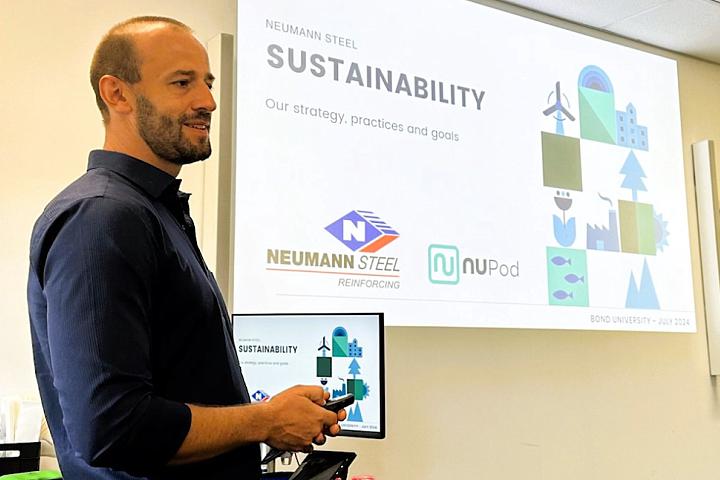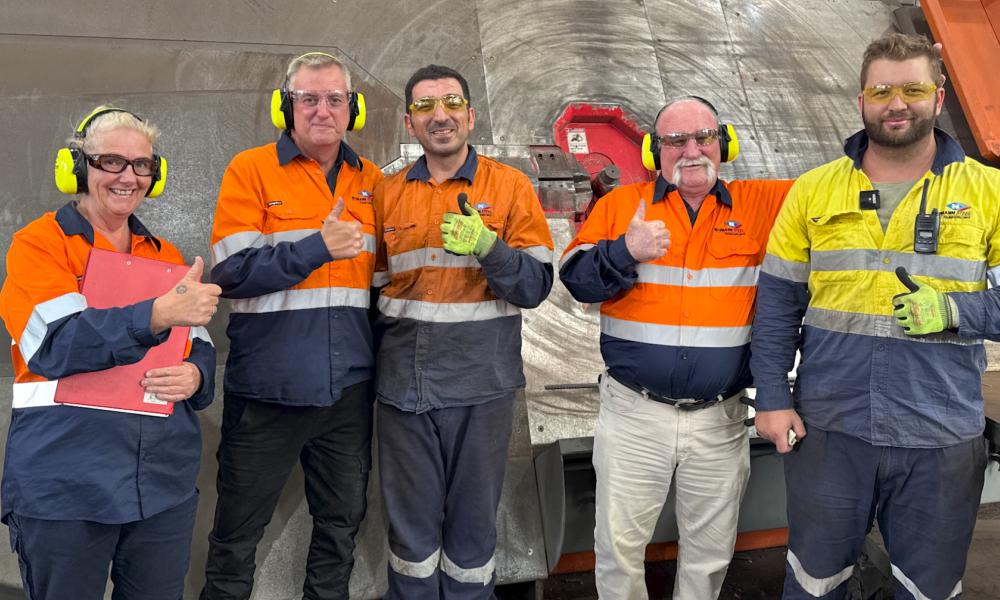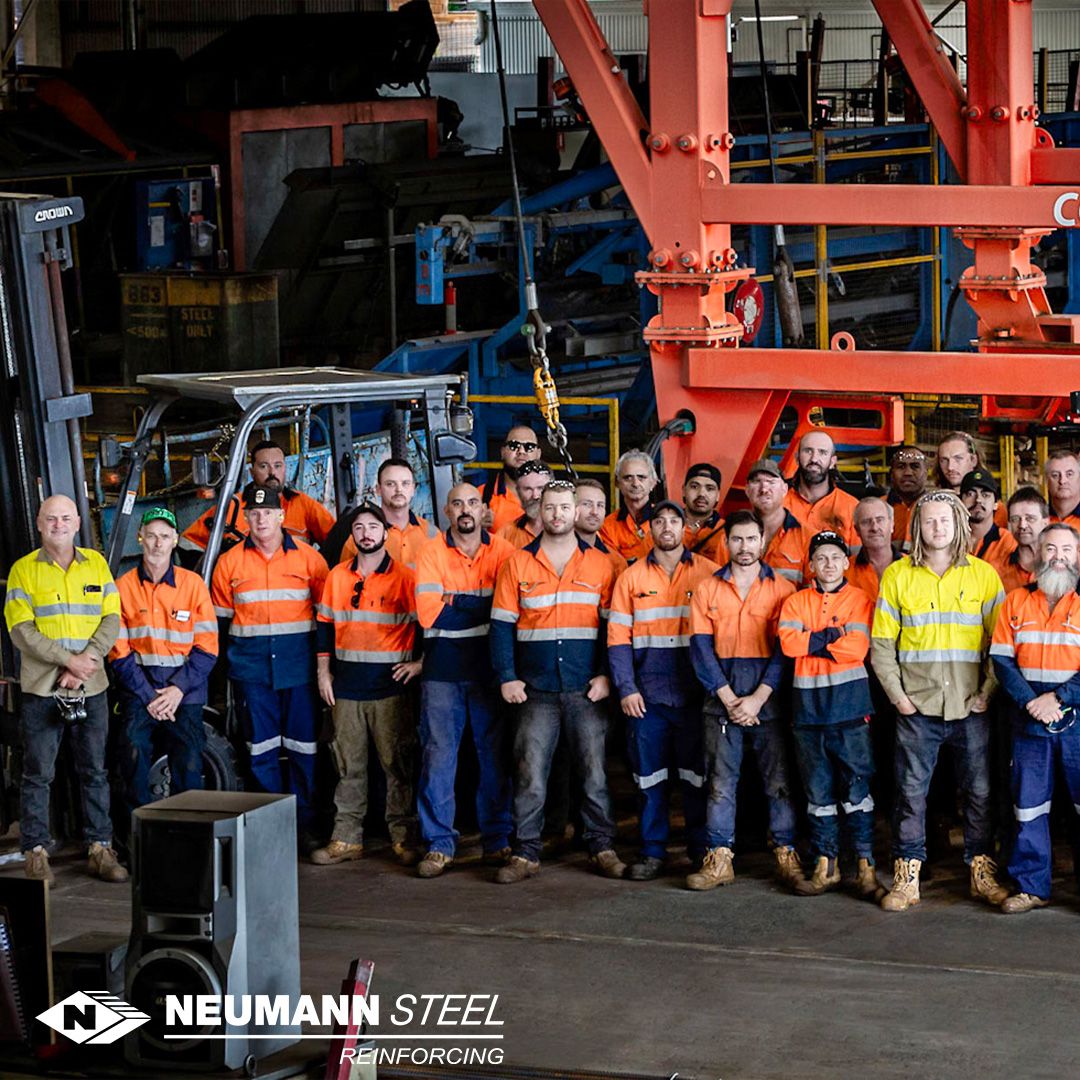Neumann Steel Ch. 2 - Navigating environmental policies and programs
Continuing RDA Gold Coast's special 'Sustainability Spotlight' video series
Welcome to Chapter 2 of RDA Gold Coast's special Sustainability Spotlight video series, with a Queensland champion of sustainable steel manufacturing — Neumann Steel.
Embarking on the path toward sustainability was not a straightforward journey for Neumann Steel. Like many in the industry, they faced significant challenges in aligning their operations with the growing body of environmental policies and best practices. However, these early hurdles were essential in shaping the robust sustainability framework Neuman Steel has today.
In this chapter, RDA Gold Coast CEO Estella Rodighiero and Neumann Steel's Shaun Stevens explore the challenges the company encountered, the partnerships that played a crucial role in guiding them, and the key strategies that helped Neumann Steel navigate the complexities of environmental compliance.
View Chapter 3 — Bringing the team along: Employee engagement in sustainability next.
Sustainability Spotlight: Neumann Steel

Getting started: Navigating environmental policies and programs
 When Neumann Steel began its sustainability journey, the company was confronted with a variety of challenges, both internal and external. A primary obstacle was the complexity of environmental regulations. Navigating through the vast array of local, national, and international environmental standards required a comprehensive understanding of both industry-specific requirements and broader legislative frameworks. Adhering to these regulations while maintaining operational efficiency posed a significant challenge, as it required not only changes to processes but also a cultural shift within the company.
When Neumann Steel began its sustainability journey, the company was confronted with a variety of challenges, both internal and external. A primary obstacle was the complexity of environmental regulations. Navigating through the vast array of local, national, and international environmental standards required a comprehensive understanding of both industry-specific requirements and broader legislative frameworks. Adhering to these regulations while maintaining operational efficiency posed a significant challenge, as it required not only changes to processes but also a cultural shift within the company.
Another challenge was integrating sustainability into their business model. Ensuring that sustainability initiatives aligned with the expectations of both internal stakeholders (employees and leadership) and external stakeholders (customers, regulators and industry partners) was no small feat. This meant balancing environmental responsibility with the company’s core operations and long-standing practices.
Perhaps one of the most profound challenges was the cultural shift required within the organisation. Moving from a traditional operational model to one that prioritises sustainability requires widespread employee training, mindset changes and new systems of accountability. Shifting the entire company culture towards sustainability involved extensive efforts to educate and engage employees at all levels, ensuring they understood the importance of environmental stewardship and their role in achieving the company’s goals.
 Recognising that navigating this complex landscape would require expertise and support, Neumann Steel made strategic decisions to form partnerships with leading environmental organisations. These collaborations were critical in the early stages of their sustainability efforts, offering valuable insights, resources, and guidance that helped them overcome initial challenges.
Recognising that navigating this complex landscape would require expertise and support, Neumann Steel made strategic decisions to form partnerships with leading environmental organisations. These collaborations were critical in the early stages of their sustainability efforts, offering valuable insights, resources, and guidance that helped them overcome initial challenges.
One of their key partnerships was with the ASI Steel Sustainability Australia (SSA) scheme. This collaboration allowed them to benchmark their sustainability practices against the industry's best standards and ensure compliance with relevant environmental regulations. The SSA scheme provided Neumann Steel with a structured pathway toward sustainability, helping them understand and apply best practices within the steel industry. Through this partnership, Neumann Steel became the first reinforcing steel company in Australia to achieve a Level 3 certification, the highest sustainability certification available in the industry. This achievement marked a significant milestone in their journey and reinforced their commitment to continuous improvement.
By collaborating with environmental organisations, Neumann were able to foster a culture of innovation and learning within the company. These partnerships not only helped them stay ahead of regulatory requirements but also enabled them to implement practices that went beyond compliance, positioning them as a leader in sustainable practices within the industry.
 To successfully navigate environmental regulations and embed sustainability into their operations, Neumann Steel adopted several key strategies and made critical decisions that shaped the foundation of their sustainability program:
To successfully navigate environmental regulations and embed sustainability into their operations, Neumann Steel adopted several key strategies and made critical decisions that shaped the foundation of their sustainability program:
Energy Efficiency Programs: One of the first steps they took was to implement comprehensive energy efficiency measures across their facilities. This involved upgrading equipment, optimising energy use and introducing on-site renewable energy production. Their commitment to energy efficiency significantly reduced both their electricity consumption and carbon emissions. This program laid the groundwork for their broader decarbonisation strategy, which aims to achieve net zero emissions by 2050.
Recycling Initiatives: To minimise waste and promote resource conservation, Neumann Steel introduced a waste management system that prioritises recycling. Today, they recycle over 95% of their waste, demonstrating a tangible commitment to sustainability. By focusing on circular economy principles, they have reduced their environmental impact while improving operational efficiency.
Sustainable Sourcing: Another key decision was to adopt responsible sourcing practices, ensuring that the materials they use meet stringent environmental and social standards. This approach not only aligns with industry’s best practices but also strengthens their relationships with customers who increasingly demand transparency and sustainability in supply chains.
Compliance and Certification: Central to Neumann Steel's sustainability strategy has been achieving and maintaining key certifications that validate their sustainability efforts. Neumann Steel is certified under ISO 14001 for environmental management, ISO 45001 for occupational health and safety, and ISO 9001 for quality management. These certifications provide a systematic framework for managing the environmental impacts of their products, services and processes. In addition, by participating in the SSA scheme, they have ensured that their operations are aligned with the highest standards of sustainability in the steel industry.
 The early stages of Neumann Steel’s sustainability journey were marked by a series of challenges, ranging from understanding complex environmental regulations to shifting company culture. However, by forging strong partnerships with environmental organisations, adopting innovative strategies, and committing to compliance through key certifications, they were able to not only overcome these challenges but also set a new standard for sustainability in the steel industry.
The early stages of Neumann Steel’s sustainability journey were marked by a series of challenges, ranging from understanding complex environmental regulations to shifting company culture. However, by forging strong partnerships with environmental organisations, adopting innovative strategies, and committing to compliance through key certifications, they were able to not only overcome these challenges but also set a new standard for sustainability in the steel industry.
"Our journey has taught us that sustainability is not a destination but a continuous process of learning, improvement and collaboration. Today, Neumann Steel stands as a testament to what can be achieved when a company fully embraces its environmental responsibilities."
